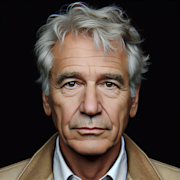Celluloid and Scandal: Controversial Moments in Classic Film History

The history of cinema is filled with iconic moments that have shocked audiences and ignited controversy. Over the years, classic films have pushed the boundaries of what is considered acceptable, leading to heated debates and scandals. From provocative themes to explicit content, these movies have left a lasting impact on both the industry and society.
The Birth of a Nation (1915)
One of the earliest and most controversial films in the history of cinema is D.W. Griffith’s “The Birth of a Nation.” Released in 1915, this silent epic depicts the Civil War and Reconstruction era through the eyes of two families: the Northern Stonemans and the Southern Camerons. While the film is considered a landmark in terms of its innovative techniques and epic scope, it is also deeply problematic due to its glorification of the Ku Klux Klan and racist portrayal of African Americans. “The Birth of a Nation” sparked protests and backlash upon its release, leading to debates about freedom of speech and the responsibility of filmmakers.
Psycho (1960)
Alfred Hitchcock’s “Psycho,” released in 1960, is renowned for its shocking twist ending and groundbreaking use of violence. The film follows Marion Crane, who steals money from her employer and ends up at the Bates Motel, where she encounters the disturbed Norman Bates. The infamous shower scene, in which Marion is brutally murdered, caused a sensation upon its release and was criticized for its graphic nature. “Psycho” challenged traditional notions of morality and paved the way for a new wave of horror films that pushed the boundaries of acceptability.
A Clockwork Orange (1971)
Stanley Kubrick’s “A Clockwork Orange” is a dystopian sci-fi film that explores the themes of violence, free will, and government control. Released in 1971, the movie follows Alex DeLarge, a delinquent youth who enjoys committing acts of extreme violence. The film’s graphic depictions of rape and murder, as well as its controversial treatment of psychology and morality, sparked fierce debates about censorship and artistic freedom. “A Clockwork Orange” was banned in several countries and remains a divisive and challenging work of art.
Last Tango in Paris (1972)
Bernardo Bertolucci’s “Last Tango in Paris,” released in 1972, is a controversial drama that explores themes of sexuality, identity, and power. The film stars Marlon Brando as Paul, a grieving widower who enters into a passionate and destructive affair with a young woman named Jeanne, played by Maria Schneider. “Last Tango in Paris” is infamous for its explicit sexual content and controversial use of rape as a plot device. The film sparked debates about the depiction of sex on screen and the ethics of filmmaking, leading to calls for greater regulation and censorship.
Natural Born Killers (1994)
Oliver Stone’s “Natural Born Killers,” released in 1994, is a satirical crime film that critiques the media’s glorification of violence and sensationalism. The movie follows Mickey and Mallory Knox, a pair of outlaw lovers who embark on a killing spree across the country. “Natural Born Killers” is known for its frenetic editing style, stylized violence, and dark humor. The film sparked controversy for its portrayal of mass murderers as antiheroes and its satirical take on the American obsession with crime and celebrity. Despite its divisive reception, “Natural Born Killers” remains a cult classic and a challenging commentary on the state of modern society.
In conclusion, classic films have a long history of pushing the boundaries and challenging societal norms. From the racism of “The Birth of a Nation” to the violence of “Psycho” and the explicit content of “Last Tango in Paris,” these movies have sparked debates and scandals that have left a lasting impact on the industry. As filmmakers continue to explore taboo subjects and provocative themes, it is clear that controversy will always be a part of cinema’s rich and diverse history.

Desmond van der Walt
Journalist
More From Classics Authority Movies

Movie
All Quiet on the Western Front (1930)

Movie
Swing Time (1936)

Movie
Shane (1953)

Movie
Toy Story (1995)

Movie
Through the Lens of Hitchcock: The Master of Suspense's Cinematic Legacy

Movie
Epic Narratives: Classic Movies with Unforgettable Storytelling





